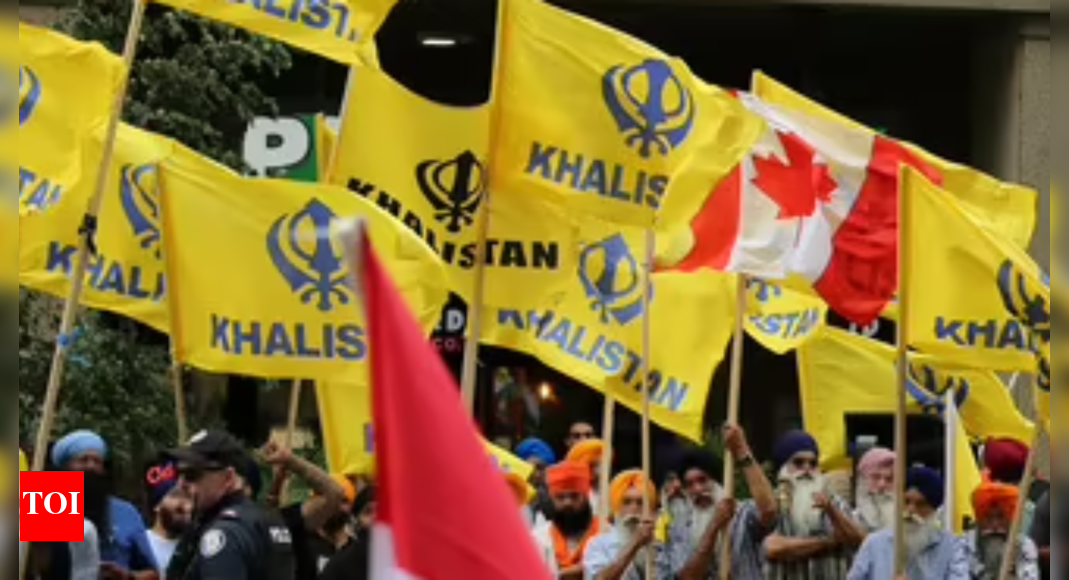Khalistani Extremists Exposed: Canada’s Role as a Safe Haven for Anti-India Activities
Sikhs Condemn Khalistani Hate Against Modi in Canada, Back PM for Historic Work for Sikh Causes
Recent revelations by Canada’s top intelligence agency have intensified discussions surrounding the Khalistani movement and its implications for India-Canada relations. The Canadian Security Intelligence Service (CSIS) has publicly acknowledged that Canada has become a hotbed for Khalistani extremists looking to promote, fund, and plan violent actions targeting India. This admission validates long-standing concerns voiced by India regarding the sanctuary status that some anti-India elements have found within Canadian borders.
Khalistani Extremism: A Growing Concern
In its 2024 annual report, CSIS made it clear that Khalistani extremists, specifically those based in Canada, are continuing their efforts towards creating an independent state called Khalistan, primarily rooted in Punjab, India. Their methods include:
- Promoting separatist ideologies.
- Fundraising for violent actions against the Indian state.
- Planning attacks intended to destabilize Indian interests both domestically and internationally.
The report specifically denotes that while most Sikh Canadians advocate peacefully for their rights, a small faction of Khalistani extremists is still active, using Canada as a safe haven to orchestrate and fund their operations. This dichotomy raises critical questions about the responsibilities of host nations regarding radical elements within their borders.
Escalating Tensions After Nijjar’s Assassination
The tensions between India and Canada further escalated after the assassination of Hardeep Singh Nijjar, a prominent Khalistani leader, in British Columbia. While Canada has linked his death to Indian government interference, India vehemently denies these allegations, referring to them as “absurd”. This incident has highlighted the fragile state of relations between the two countries and showcased how local conflicts can have broader international repercussions.
CSIS also pointed to the notion that Indian efforts to suppress the Khalistan movement are driving this foreign interference, suggesting that there is much more beneath the surface than the public narrative indicates. The intelligence report seems to place the onus on violence and extremism on a few individuals while acknowledging that the larger Sikh community’s peaceful advocacy should not be conflated with the violent actions of a select few.
A Diplomatic Balancing Act
As these complexities unfold, Canadian Prime Minister Mark Carney met with Indian Prime Minister Narendra Modi at the recent G7 Summit in Alberta. The leaders took steps to restore diplomatic ties, including:
- Appointment of new high commissioners.
- Resuming much-needed trade negotiations.
Carney emphasized the importance of India as a significant player in the global economy and defended his invitation to Modi despite ongoing criticism from various Sikh advocacy groups and some Canadian Members of Parliament. This diplomatic balancing act reveals inherent challenges in addressing local sentiments without alienating a key international partner.
Community Voices Rising Against Extremism
Against this backdrop, many Sikh communities have voiced their disapproval of the Khalistani hate, especially against Modi. They argue that PM Modi’s initiatives have historically benefitted Sikh causes—especially in India. This sentiment is crucial because it challenges the narrative pushed by a small but vocal section of Khalistani advocates who often misrepresent the larger Sikh community’s perspectives.
As articulated by community leaders, the focus should be on:
- Promoting dialogue and peaceful advocacy.
- Recognizing that the majority of Sikhs do not agree with violent extremism.
- Supporting initiatives that foster understanding and collaboration between India and Canada.
The recognition of Khalistani extremism as a significant issue by Canadian intelligence shows a shift in the narrative that could aim to unify both nations in dealing with the complexities posed by radical elements. The success of such approaches, however, relies heavily on a collaborative effort from both governments and communities to address the underlying grievances without promoting further division.
The Way Forward
As the world watches the implications of these recent assessments and diplomatic discussions unfold, the central takeaway remains: both nations must work towards reducing extremism while fostering an atmosphere of mutual respect and understanding. The Sikh community, with its diverse voices, stands at a pivotal crossroads, indicating that the quest for justice should not be marred by violence, but rather led by dialogue.
Ultimately, ensuring peace and collaboration in countries like Canada and India will necessitate a larger societal effort to reject hate and embrace understanding—an imperative echoed by Sikhs condemning Khalistani extremism and supporting PM Modi’s historic work for Sikh rights.





